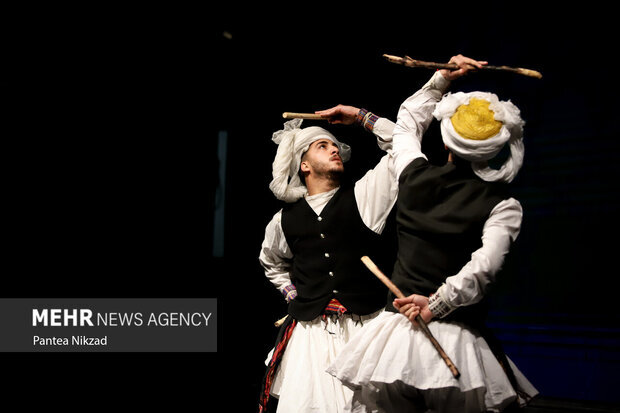Folk music, dance added to national heritage list

TEHRAN – A selection of indigenous routines including folk music and dance being practiced in northern and northeastern Iran have been registered as national heritage by the Ministry of Cultural Heritage, Tourism and Handicrafts.
“Maqami music and a local dance from three different Iranian regions have been registered on Iran’s National Intangible Cultural Heritage list,” a cultural heritage expert announced on Saturday.
“The Haqani Maqam music from Mazandaran province, the Katuli Maqam music from Mazandaran and Golestan provinces as well as the Kurmanji dance from Razavi Khorasan and North Khorasan provinces have been designated as national cultural heritage,” Behruz Vojdani said
To be listed on the intangible cultural heritage list, each element must fulfill its role and function, be alive and dynamic, and end up affecting the lives of three generations of people, he explained.
Almost all musical instruments and songs from every region of the country have been nationally registered so far, he added.
The Maqami music is connected to the traditions and thoughts of an ethnic group living in a particular region.
A maqam is a specific musical scale combined with characteristic melodic elements or motifs, played following traditional formats, which together form a complete system for the melodic and tonal structure of a musical performance.
The Maqami music is more common in the regions of Khorasan, Sistan-Baluchestan, Hormozgan, and Bushehr.
Since Kurmanji people migrated from Kordestan to northern Khorasan centuries ago, they have been culturally influenced by Khorasan’s culture, despite speaking Kurdish.
Kurmanji dances such as those from East and Central Khorasan are performed in circles. The folk performance starts with a slow yet heavy tempo and gradually speeds up. What is evident, however, is women jump more slowly than men.
Narratives say these dances tell the story of migration, hard work, cooperative endeavors, unity, dedication, as well as the ancestors who deemed their people worthy of love and happiness.
ABU/AFM
Leave a Comment